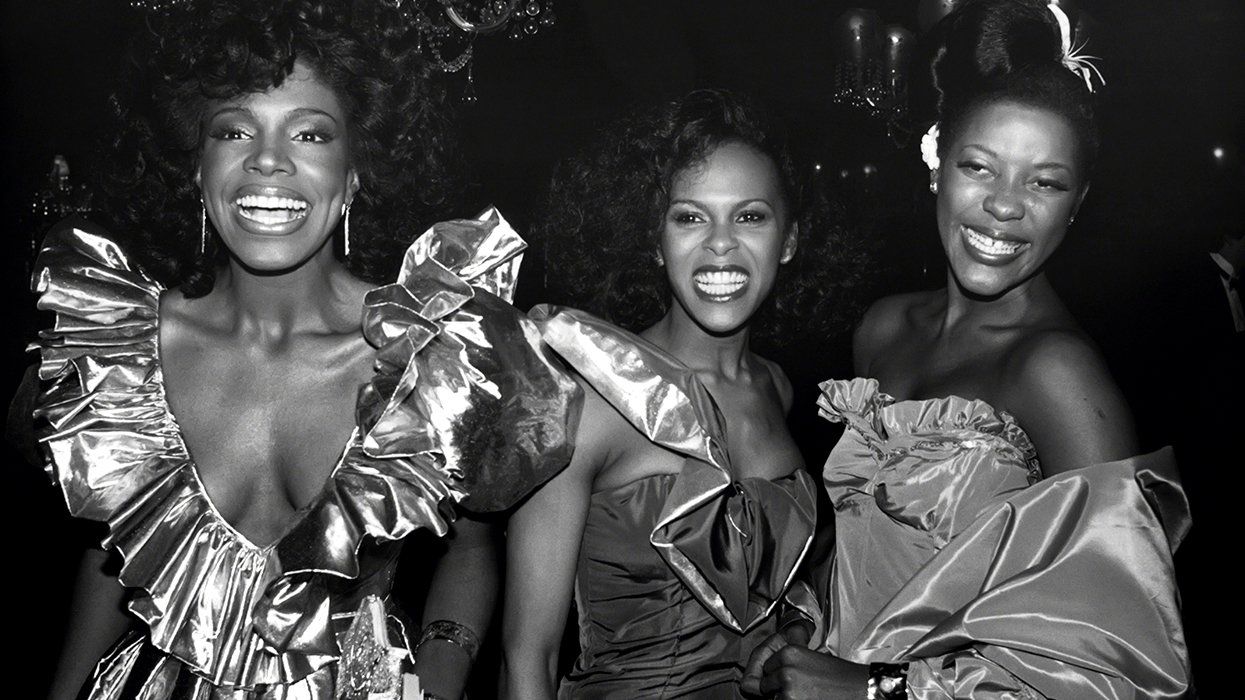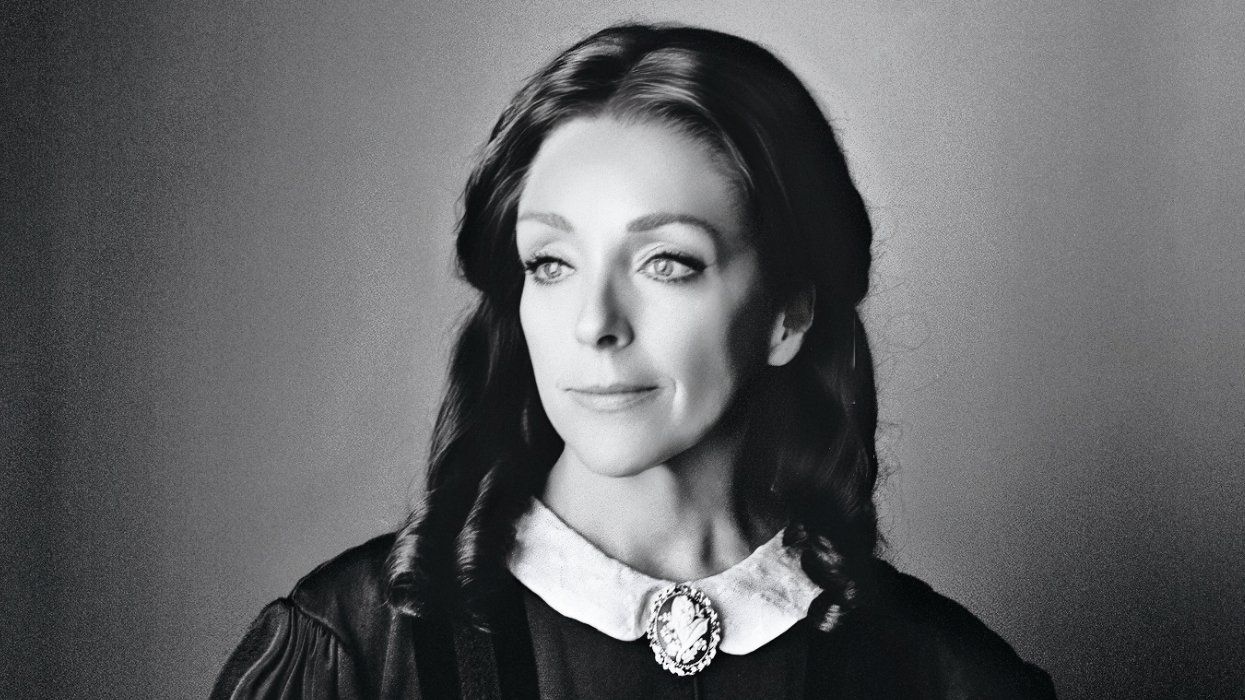"I can't stop crying" said the outraged and tearful Ellen DeGeneres in response to the savage murder of Mathew Shepard. Today in my Manhattan apartment I find myself in a similar condition. I can't stop crying.
After ten years, I am relearning my roles in The Laramie Project. It's emotional on many levels. The subject matter itself is still painful. The time when I originated the roles is a precious period of my life. I have performed this play countless times, even in Laramie, and I am grateful to be able to return to it. I am also one of the writers. The Laramie Project by Moises Kaufman, Leigh Fondakowski, Stephen Belber, Steve Wangh, and me (with the help of many other members of Tectonic Theater Project), was our response to the murder of Matthew Shepard. We spent over two years interviewing people and developing the piece. I feel a strong connection to both the story and to the people I represent.
Now Tectonic Theater Project is restaging the play. We are also staging our new play, Laramie: Ten Years Later, which explores how Laramie has changed since Matt was killed.
Matthew Shepard was a gay University of Wyoming student who was tied to a fence, beaten, and left to die. His murder was a devastating moment in many queer people's lives. It certainly was in mine. Here was a young man with whom most of us could deeply identify. Whether we had been physically abused for our sexuality, had suffered the daily humiliation of name calling in school, or lived with the undisguised scorn that so often warps and discolors the lives of queer people who refuse to be in the closet. I was certainly the subject of ridicule and extreme bullying because of my sexuality from Elementary school on. Later when I was all grown up in New York City, a man jumped from his car and beat me with a pipe because I was kissing my boyfriend on the street. I never reported it. Matt's story undammed our grief and ignited our outrage.
A few days after Matthew Shepard was attacked, Moises Kaufman, our artistic director, called the company together and posed the question, "Is there something that the theater can add to a conversation about current events? Do we as a company have anything to contribute to the dialogue around Matt's murder?" He proposed that we go to Laramie to explore these questions. He wanted to see if a play could be written about what was going on there. So we embarked on that exploration.
Leigh Fondakowski and I were the first to head out. We were both members of the company at that time, but had never worked on a show and barely knew each other. We're both queer and we were both pretty scared, so we bonded immediately. Since then she has become one of my closest friends and collaborators. This is just one of the many debts of gratitude that I owe to Matt.
After two and half years of research, writing, and exploration in the studio, we opened at the Denver Center (pictured above). We knew we wanted the world premiere there because they are the professional theater closest to Laramie. It's about a two hour drive. Subsequently, we moved the show to New York, and later went on to perform it at Berkeley Repertory Theater and La Jolla Playhouse. We also adapted it into an Emmy nominated teleplay for HBO filmed on location in Laramie and Denver, Colorado. We also performed the play several times in Laramie.
One performance was for high school students who had gathered from all over the state for a Wyoming State high school theater competition. At the point in the play where I announce that Matthew Shepard has died, this entire group of kids let out a communal wail that I could literally feel in my body. It completely stopped the show. My fellow actors started crying, I started crying, the kids were crying. We all just cried together. Then we went on. It was the most intense theatrical experience of my career.
Since its initial success, The Laramie Project has become one of the most performed plays in America. There have been many fine professional productions of the play, of course, but for me the most exciting performances are the ones I see in high schools. What's so moving about these productions is not Matthew's story alone. These students are so unguarded in the expression of their outrage in the face of injustice. Of course, I am so moved by the LGBTQ students, who so deeply identify with Matthew and give their all to do justice to the story. Equally moving to me, though, is watching straight students grappling with the magnitude of the hatred that queer people face, often for the first time. Many of these kids begin to rethink their own behavior and language because of their contact with the play and Matt's story. Kids form GSA's after they do our play. They fight for the rights of queer people in their communities. They become activists. One group of young women in California were forbidden to produce the play in their conservative school, so they did a fundraiser and produced it themselves. Their production was a massive hit in their town. Leigh refers to them as "the power lesbians."
In the summer of 2008, as the ten year anniversary of Matt's murder approached, Moises challenged the company with another radical idea. Could we write a short piece that followed up with the community and asked how the town had (or hadn't) changed over the last ten years. Leigh Fondakowski, Andy Paris, Stephen Belber and I returned to Laramie with Moises to begin work on what we intended to be a short epilogue to The Laramie Project. During the course of our work I was able to speak extensively with Matt's killer, Aaron McKinney, and Stephen Belber spoke with his accomplice, Russell Henderson. Looking at those interviews and our conversations with the people in Laramie, it became clear that this story was far too complex to tell in a short epilogue. So we wrote a second full length play, called Laramie: 10 Years Later.
After another year of work, we performed a reading of that play at Lincoln Center on the anniversary of Matt's death. Glenn Close (pictured above), whose parents live in Big Piney, Wyoming, opened the evening and then introduced Judy Shepard. The whole of Lincoln Center's Alice Tully Hall erupted in applause when Judy announced that The Matthew Shepard and James Byrd Jr. Hate Crimes Prevention Act had finally passed in both the house and the senate. President Barack Obama signed the bill into law a few weeks later. Dennis and Judy Shepard, along with Wyoming law enforcement agents, Rob DeBree and Dave O'Malley and many others, fought an uphill battle for ten years to get this legislation passed. Judy then turned the evening over to the company.
The reading itself was another emotional experience. The original company of The Laramie Project had been reassembled, and it was the first time we had all been on a stage together for ten years. This event was another theatrical experiment conceived by both Moises Kaufman and Tectonic's executive director Greg Reiner. While we read the play at Lincoln Center, 150 participating theaters across the country and around the world were reading it too.
The evening closed in a post show discussion with the Judy, the writers, and the company. The opening and closing were simulcast to all the participating theaters around the world. Participating companies and audiences world wide were able to join us at Alice Tully Hall via satellite for our conversation about Matt and Laramie.
Now another year later, we are preparing to go on tour with both plays. During August and September, I will be chronicling our company's process as we ready the shows for the tour. This should be relatively hair raising, as we have only three original company members and have to stage two plays in five weeks! In October and November, I will be reporting how communities around the country are responding to the plays. Hopefully, that will be a little less hair raising, but you never know. People love to protest The Laramie Project. Fred Phelps, who protested outside Matthew's funeral with signs that read "God Hates Fags," has made a career out of offending communities who do The Laramie Project.
So that brings me back to Ellen and not being able to stop crying, she had come out right before Matt's murder. She went on to say in that same interview, "it just hit me. This is what I was trying to stop. This is why I did what I did."
Above picture: (left to right) Andy Paris, Stephen Belber, Greg Pierotti at Lincoln Center.
Many of us cried long and hard over Matthew Shepard. It still hurts and we should. I will continue to cry over Matt eight shows a week for the next few months, and it will continue to be genuine. Still we also need to look to the example of Judy Shepard. She doesn't spend a lot of time crying when she talks about Matt. She celebrates him (her book The Meaning of Matthew is an incredibly moving read), and she works hard for the rights of queer people.
Clearly, we've made some great strides since October of 1998. Queer people are now protected under a federal hate crime law. Ellen has joined Will and Grace in the main stream. A few more states have passed gay marriage. And, of course, we are all currently celebrating the striking down of Prop. 8 in California.
I'm celebrating too. Thank goodness the ruling went the way it did. But can I just say... really? It's a pretty sorry situation when simply stopping a bunch of church groups from amending a state constitution in order to deny people their civil rights is counted as a huge victory. It's absurd that it came up in the first place. " Don't ask, don't tell" and DOMA are two gifts from Clinton that keep on giving. Hate crimes against gay people are up since 1998 not down. I am not naive. I know how difficult it is to create change. I know that a handful of performances of our play is not going to wipe homophobia from the planet. It's my hope, however, that our two plays will continue to reach hearts and change minds around the country and the world. So here I am in my apartment rehearsing my lines in The Laramie Project. The toughest lines I have to say are from a media update given by Rulon Stacey of the Poudre Valley Hospital where Matt was taken when he was found.
He says: "On Monday, October 12th... at 12:53 AM, Matthew Shepard died ... His family was at his bedside. Matthew's mother said, 'go home, give your kids a hug, and don't let a day go by without telling them you love them."
Rulon Stacey became tearful when he made that statement to the media. It's my job in recreating that experience to become tearful too. It's not a hard job. Ten years later I still cry like a baby when I say those words. A few days after Matt's death, Rulon Stacey received an email from a viewer who had seen his emotional moment on the news. It asked, "do you cry like a baby on TV for all your patients or just the f****ts?" It's still astonishing to me how hateful people can be. There is so much work yet to be done.
Check back in two weeks for the next installment of Pierotti's column.















